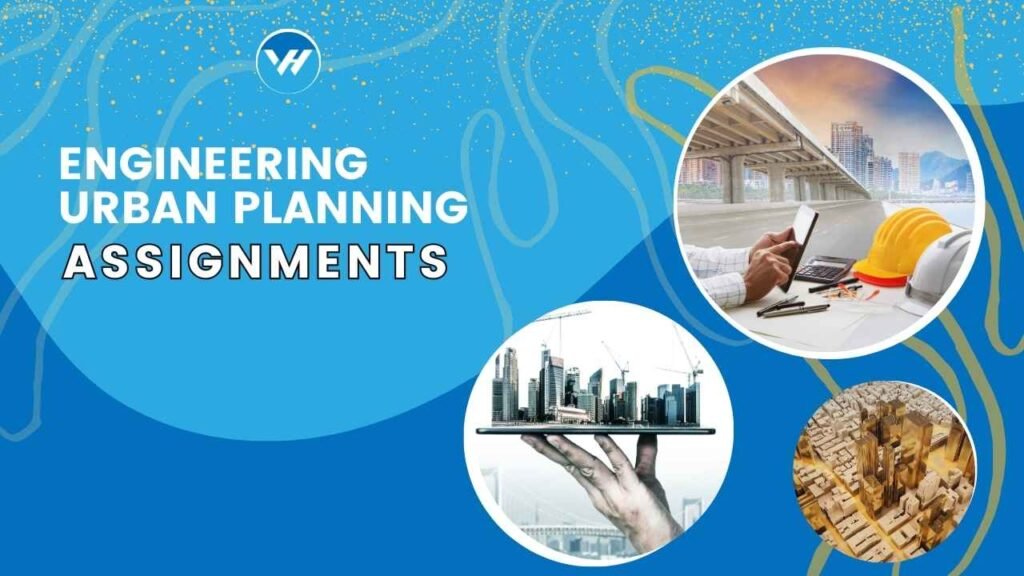Urban planning is a crucial aspect of engineering that focuses on designing and organizing urban spaces to enhance the quality of life for residents. It involves the systematic development of land and infrastructure to create sustainable, functional, and aesthetically pleasing urban environments. But why is urban planning so important? And what role do engineers play in this field? Let’s dive in!

Table of Contents
ToggleUnderstanding Urban Planning
Urban planning is all about envisioning and designing the layout of cities and towns. It encompasses everything from the placement of roads and buildings to the integration of green spaces and public transportation. The primary goal is to create a balanced and harmonious environment that meets the needs of the community.
Key principles of urban planning include:
- Sustainability: Ensuring that development meets present needs without compromising future generations.
- Accessibility: Making sure that all parts of the city are easily reachable.
- Resilience: Building cities that can withstand and recover from natural disasters.
- Inclusivity: Designing spaces that are welcoming and accessible to all individuals.
The Role of Engineers in Urban Planning
Engineers are integral to the urban planning process. Their technical expertise and problem-solving skills are essential for designing infrastructure that supports urban growth and development. Engineers collaborate with urban planners to ensure that projects are feasible, safe, and sustainable.
Engineers contribute to urban development by:
- Conducting feasibility studies
- Designing and constructing infrastructure
- Ensuring compliance with safety and environmental regulations
- Using technology to create innovative solutions
Types of Urban Planning Assignments
Urban planning assignments can vary widely, each requiring a unique approach and set of skills. Here are some common types:
Environmental Impact Assessments: Assessing the potential environmental effects of proposed developments and finding ways to mitigate negative impacts.
Traffic and Transportation Planning: Designing efficient transportation systems that reduce congestion and improve mobility.
Land Use and Zoning: Determining the best use of land in urban areas to balance residential, commercial, and industrial needs.
Infrastructure Development: Planning and constructing essential services such as water supply, sewage systems, and electrical grids.
Smart City Planning: Integrating advanced technologies to enhance urban living and improve resource management.
Key Components of Urban Planning Assignments
Urban planning assignments are multifaceted and involve several critical components:
Site Analysis and Data Collection: Gathering and analyzing data about the physical, social, and economic characteristics of the site.
Public Participation and Stakeholder Engagement: Involving the community and stakeholders in the planning process to ensure that their needs and preferences are considered.
Design and Planning Proposals: Creating detailed plans and designs that outline the proposed development.
Implementation and Project Management: Overseeing the execution of the project, ensuring it stays on schedule and within budget.
Monitoring and Evaluation: Assessing the outcomes of the project to ensure it meets the intended objectives and making necessary adjustments.
Common Challenges in Urban Planning Assignments
Urban planning is fraught with challenges that require innovative solutions and careful consideration:
Balancing Development and Sustainability: Finding the right balance between promoting economic growth and protecting the environment.
Addressing Social and Economic Issues: Ensuring that urban development benefits all residents and addresses issues such as housing affordability and social equity.
Managing Public Opinion and Expectations: Navigating the diverse opinions and expectations of the community and stakeholders.
Best Practices for Engineering Urban Planning Assignments
To excel in urban planning assignments, engineers and planners should adopt best practices that promote collaboration, innovation, and adherence to regulations:
Collaborative Approach: Working closely with all stakeholders, including government agencies, community groups, and private developers.
Use of Technology and Software Tools: Leveraging advanced tools such as GIS, CAD, and BIM to enhance planning and design.
Adherence to Regulatory Frameworks: Ensuring that all plans comply with local, state, and federal regulations.
Incorporating Innovative Solutions: Exploring new technologies and approaches to create more efficient and sustainable urban environments.
Tools and Technologies in Urban Planning
Modern urban planning heavily relies on technology to streamline processes and improve outcomes:
Geographic Information Systems (GIS): Used for mapping and analyzing spatial data to inform planning decisions.
Computer-Aided Design (CAD): Helps in creating detailed and accurate design plans.
Building Information Modeling (BIM): Allows for the visualization and management of building data throughout the project lifecycle.
Simulation and Modeling Software: Used to predict the impact of different planning scenarios and make informed decisions.
The Future of Urban Planning
Urban planning is constantly evolving, with new trends and technologies shaping the future of cities:
Trends in Urban Planning and Engineering:
- Increased focus on sustainability and resilience
- Greater emphasis on community involvement
- Integration of smart technologies
The Role of Technology and Innovation:
- Use of big data and analytics to inform planning decisions
- Development of smart infrastructure and IoT applications
Virtual Help: Your Partner in Urban Planning Assignments
Virtual Help is an online platform that connects students with tutors and provides assignment help. Whether you’re struggling with a complex urban planning assignment or need guidance on a project, Virtual Help can assist you.
How Virtual Help Can Assist with Urban Planning Assignments:
- Access to experienced tutors with expertise in urban planning
- Assistance with research, data analysis, and design proposals
- Support with project management and implementation
How to Get Started with Virtual Help
Getting started with Virtual Help is easy and convenient:
Steps to Sign Up and Find a Tutor:
- Download the Virtual Help app from the App Store or Google Play.
- Create an account and log in.
- Browse through the list of available tutors and select one that matches your needs.
- Schedule a session and get the help you need.
Features and Benefits of Using Virtual Help:
- 24/7 access to expert tutors
- Personalized assistance tailored to your specific needs
- Flexible scheduling and affordable rates
Conclusion
Urban planning is a dynamic and challenging field that requires the collaboration of engineers and planners to create sustainable and livable cities. By understanding the key components and challenges of urban planning assignments, adopting best practices, and leveraging modern tools and technologies, you can excel in this field. And with the support of Virtual Help, you’ll have the guidance and resources you need to succeed.
FAQs
What is urban planning in engineering?
Urban planning in engineering involves designing and organizing urban spaces to create functional, sustainable, and aesthetically pleasing environments.
How do engineers contribute to urban planning?
Engineers contribute to urban planning by conducting feasibility studies, designing infrastructure, ensuring regulatory compliance, and implementing innovative solutions.
What tools are commonly used in urban planning?
Common tools in urban planning include GIS, CAD, BIM, and simulation and modeling software.
What are the challenges faced in urban planning assignments?
Challenges include balancing development and sustainability, addressing social and economic issues, and managing public opinion and expectations.
How can Virtual Help assist with urban planning assignments?
Virtual Help provides access to experienced tutors, assistance with research and design proposals, and support with project management and implementation.





